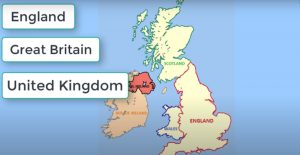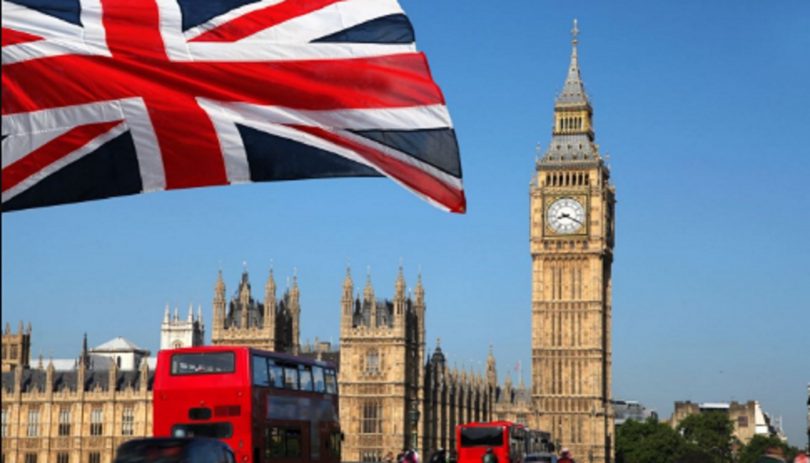Table of Contents
The US Census Bureau reports about 30% of Americans claim English heritage, meaning that any genealogical research may extend across the Atlantic Ocean.
Luckily, we have genealogy experts ready to do the hard part for you and create a report, family tree, or chart tracing your ancestors in England.
Key Takeaways
- The four territories comprising the United Kingdom of Great Britain and Northern Ireland may share elements. Still, they also have notable differences that could impact your genealogical research.
- Before you leap across the pond, it’s wise to gather information from the most accessible sources like the internet or relatives.
- If you have English heritage and are concerned about crossing the Atlantic for information, we can help you narrow down the options and quickly determine your ancestors and their origins.
RELATED:
European Genealogy Back to the Old World
What’s The Difference Between Britain, England, And the United Kingdom?

The different territories in England
The first thing you need to understand, even before starting your heritage research, is the different terminologies used interchangeably but actually mean different places.
Britain refers to Great Britain, a vast island in the British Isles made of Scotland, England, and Wales. The United Kingdom comprises Great Britain and Northern Ireland, a sixth of a separate island called Ireland.
So, when people talk about British heritage, they may mean Scotland, England, Wales, or Northern Ireland. Hence, our particular focus is on just the England territory, which is referred to as a country but is not sovereign.
Sure, the four territories making up the United Kingdom of Great Britain and Northern Ireland may share elements, but they also have notable differences that could impact your genealogical research. At Record Click, we explore each country’s heritage differently, and this article will focus on English heritage.
As we pursue English heritage, another aspect to consider is that the country has borders making up 48 counties or shires. These borders have shifted recently, with older shires absorbed and new ones created. Therefore, conducting your English genealogical research with the old and new maps would be wise to ensure everything is clear along the way.
Crucial Sources for English Genealogy Research

Genealogy sources include expertise, online databases and family and relatives
Before you leap across the pond, it’s wise to gather information from the most accessible sources like the internet or relatives. Detail every piece of information that you find out about your ancestors and background. This may include a name, important dates, events, accolades, occupation, or residence. Exhaust all sources and records in the country your ancestors migrated to and find clues that come in handy as you proceed to English records.
If relatives lack substantial information about your ancestors or genealogy, there are sites and places to look for crucial leads in your research.
1. Census Records
Census reports are the first thing you should look at when no substantial information surfaces regarding foreign heritage. The records are designed to detail the population for years, and England conducts the exercise every ten years, dating from 1841. However, Great Britain’s restrictive privacy laws only allow us to access the census from 1911.
In genealogical research, census records can help you understand the family structure at a given time in addition to birthplace, names of individuals, occupations, and relationships. However, you must be keen on common errors found on census records, like wrong assumptions by the enumerator, inaccurate spellings, and age reporting.
2. Civil Registry of Vital Events
If the census reports provide insufficient information, you can search for birth, marriage, and death information in a civil registration office. In addition to the records, you can find indices with full names, venues, and dates.
Birth records have the name of the child and both parents. In contrast, the marriage record includes the age, occupation, and names of witnesses. Similarly, death records will show the usual Address and cause of death, among other things.
How To Research Your England Genealogy

conducting genealogy research
It would be a hassle commuting to all the archives from London to Manchester looking for records regarding your grandparents who lived back in the early 90s. Instead, a comprehensive genealogy would identify even closer relatives who would better guide your lineage in England.
Tracking your English ancestor involves detailing the full names of every person connected to you. The family tree has proven most effective in expanding your family details with you as the root. Download free family tree samples and make family research a study and a fun activity in your living room. Every space in the family tree should include the person’s full name, special dates like birth and death, and other relevant information.
If you don’t have any reference material at your disposal, try online searches for any clues. Besides, you can visit the National Archives and General Registrar‘s office for all records from birth to census.
Hire a Professional Genealogist

RecordClick Hire A Genealogist
The process sounds easy in theory, but piling up the paperwork and dealing with all the bureaucracy can be a hassle. This is the point where you need a professional genealogist.
A genealogist specializes in the descents of persons and knows the checkmarks of finding a specific ancestor. Record Click Professional Genealogists will expedite the process of unearthing personal information and help you understand the historical contexts. Only a professional genealogist can perfectly navigate the national library and quickly track your story. They also come in handy when you want to ensure you get everything right during the British citizenship application by descent.
However, it’s advisable to contact your state’s consulate general office for directions on the application process, especially regarding descent, application fee, and duration. Of course, the first step in the citizenship application process starts by visiting the state’s consulate with your genealogy information and records.
RELATED:
Find a Genuine Genealogist for Accurate Ancestry
Discover Your English Heritage
If you have English heritage and are concerned about crossing the Atlantic for information, we can help you narrow down the options and quickly determine your ancestors and their origins. Contact us and share with genealogy experts about which project fits your needs.







